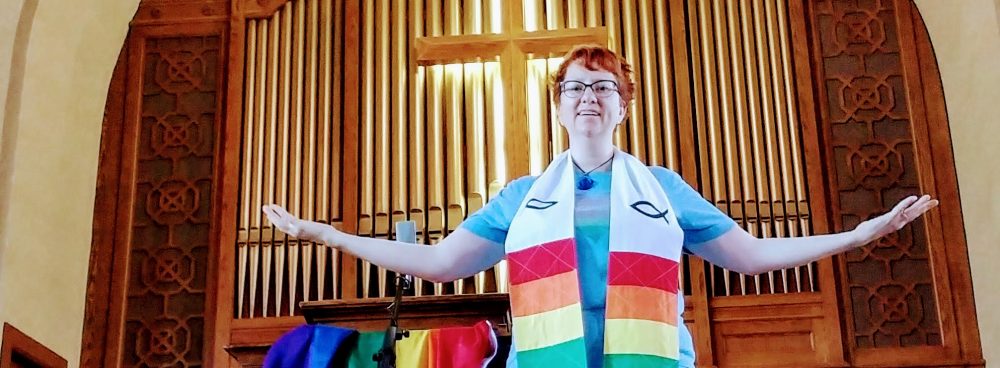The prophet Jeremiah is writing at the beginning of the Babylonian exile and he is dreaming of a future time. The people are pretty disheartened. Those with skills, wealth or power were taken away. Left behind were the poorest of the poor. Jeremiah 31:7-9 is intended to offer comfort and encourage the people during the time of exile. He reminds them that they have not been abandoned by God and there will be a different time. There will be a time when they can celebrate and rejoice. Covid sometimes feels like an exile from everything we know. There is layer upon layer of trauma. There might be weddings, funerals or other occasions missed. Loved ones we can’t see before they die. Routines that are disrupted. We watch as people die unnecessarily. We wait as our healthcare system is overwhelmed. We miss family and friends. Our work is different. Even something as normal as coming to worship is no longer normal. It feels like nothing is as it should be. It is easy to be disheartened and distressed.
The Hebrew people were exiled to a strange land and in chapter 29 Jeremiah tells them to embrace the new land in which they find themselves. Make a new life there. Have families, build houses, plant vineyards. If they are able to thrive in that place, they will survive. They don’t know when they will return. It isn’t just putting in the time and waiting impatiently for the day they will return. Jeremiah’s instructions are clear…You have to keep living fully in this new place. It will be different, but you can make a new life…and even when you return, it will be different. The exile lasted 70 years so the people left behind learned to function as a society without the rich, powerful, skilled people. Their way of life changed during that time. Those returning were coming back to a land they had never seen. They only had the stories of parents and grandparents, so it won’t be like what they imagined. The exile was a time of upheaval for the Hebrew people. It was a time of loss, of weeping, of challenge, of distress. Families were torn apart and separated. Rituals and customs were disrupted. They didn’t have a choice about going through this time but they did have a choice about how they spent that time.
They could spend the whole time weeping and moaning and waiting for the good old days—for normal to return or they could embrace the new life they were given and figure out how to live fully and thrive in a challenging situation. That’s often easier said than done and I know that I have found it challenging to thrive in the midst of covid. Everything is different. I’m having to constantly learn new skills and new ways of doing ministry. I miss family and friends. I miss “normal” activities. It feels like my ability to thrive is limited at the moment.
Every generation has difficult times…A war, drought or other natural disasters, famine, disease. Many of the saints we identified earlier lived through these experiences. If we think about their lives, we might notice that they found ways of thriving even in difficult circumstances. Their lives give us hope for our own lives.
And Jeremiah also offers hope (v 9)
With weeping they shall come,
and with consolations I will lead them back,
I will let them walk by brooks of water,
in a straight path in which they shall not stumble;
I think one of the challenges for us is that we are waiting for a return to “normal.” But what if the return that Jeremiah is describing isn’t getting back to what we thought we knew. Maybe our return is the ability to thrive and live a full life in the midst of challenges. If we wait for normal, before we find joy and celebration, before we embrace life again, we might miss the return that Jeremiah is describing.
So my invitation for all of us is to embrace the place we find ourselves now. We need to learn how to live fully and thrive in this time and with these circumstances. That isn’t always easy but Jeremiah reminds us that God has not abandoned us. Even in what feels like exile, we are not alone and there is the possibility of fullness of life—even here.


